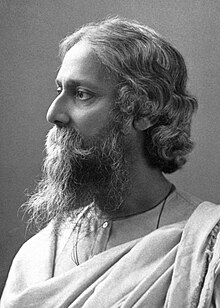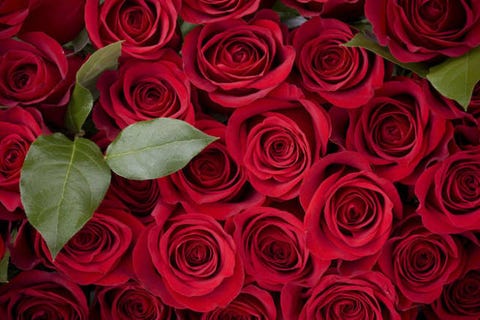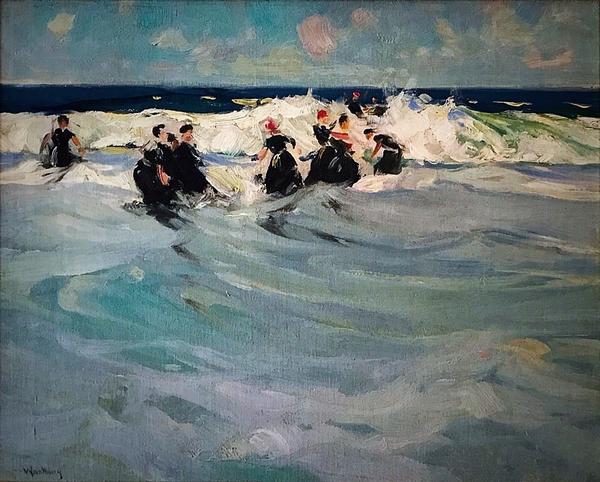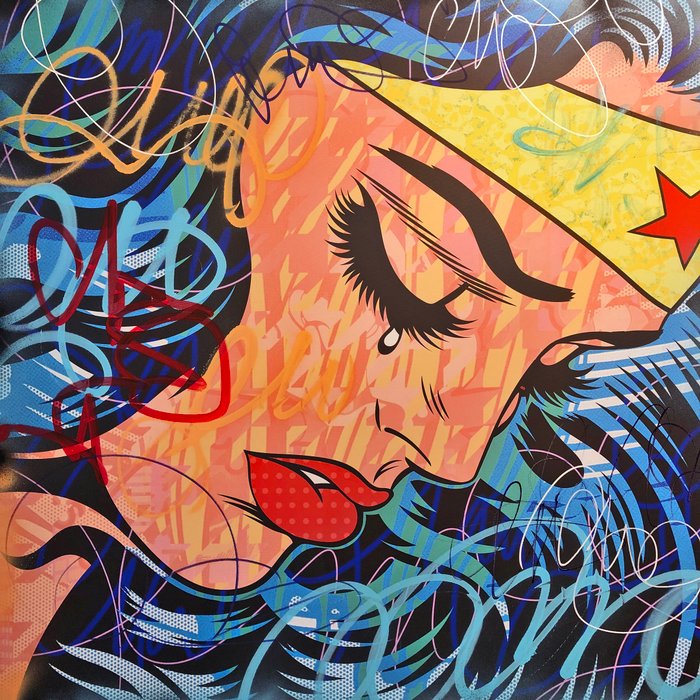
Poetry’s India issue is not an India issue.
In the globalist introduction by editors Kazim Ali and Rajiv Mohabir, we are told countries do not exist; only colonies and far-flung sub-cultures do.
In their introduction to Poetry’s “Global Anglophone Indian Poems,” the editors wish to erase the nation of India:
“Indian” is the wrong word to encompass and label diasporic subjectivities of South Asians that descend from a system of indenture.
This sounds like something one would hear in the British Foreign Office around 1933.
Narratives flip. History repeats. The optimism of Indian independence from the British in the middle of the 20th century has been replaced by the pessimism of learned, anti-colonialist academics, who hold that there was no “Indian” independence from the “British” after all—because, according to Ali and Mohabir, “There is no such thing as cultural purity—Indian or not.”
A nation—which gathers together differences in a happy embrace—is this possible? It was not, according to the British Empire, whose very rule depended on division, nor is it anything the editors wish to get behind, spending most of the introduction asserting India isn’t real. Because nothing “culturally pure” exists. Which we all know, but…
“Culture” is a term always used broadly, and in terms of connection—and this is the very essence of the word; and this aspect of it shouldn’t inspire fear, unless one wants to get rid of culture altogether. We all admire gardens, and gardens grow, even as they remain gardens. Nations are nations in as much as they have a culture which binds the nation as a nation together, and this is a good thing. The editors, however, see danger:
The notion of a culturally pure India is a dangerous weapon leveraged to maintain social distance, as in some cases it fans anti-Muslim and anti-Black politics.
Is “social distance” civility? What do they mean by this?
And what exactly is “Muslim politics?” And is “Muslim” or “black politics” ever “pure,” and, because of this “purity,” is it, too, “dangerous?”
Or is it only the “culturally pure India” which is “dangerous?”
Division is always good, according to the editors—since the greatest unity India ever achieved was “an India that does not exist today, except for in histories kept by elders: a pre-partition British India, a single landmass owned by white masters.”
God forbid Indians get to rule a “landmass.” Better, according to the editors, that Indians are divided—to the point where they don’t really exist.
For Ali and Mohabir, Indian unity of any kind is either non-existent, white, or bad. India as a Hindu country is something the editors cannot bring themselves to even mention, as this, perhaps to them, is the ultimate horror. They refer to Hindus once—in the first paragraph, as if the religion practiced by a billion Indians, 4 Indians in 5, were a minor anomaly:
On the one hand, “Indian” languages were always transnational, or—in more modern times—global. Regional languages encountered one another, as well as Farsi and Urdu, during Mughal conquests; the concepts of Hindi as a national language and Hindustan as a national space were both developed in response to the perceived foreign influence of the northern empire builders. Crosspollination existed between the Urdu-speaking Mughals and Farsi- and Arabic-speaking cultures, both in spoken and written literatures. Queen Elizabeth I and Emperor Akbar the Great were exchanging letters in Urdu and English through their translators before there was a British East India company.
This is their first paragraph. What does this mean?
I understand protecting minority rights—constitutions and laws cover this; but to forever and preemptively assume the majority is the devil, and to always undermine it on principle isn’t exactly the recipe for a strong and happy nation.
The editors point of view seems to be that anything which has anything to do with “indenture” and “diaspora” is the best thing of all. A kind of strange, unholy, celebration of the results of the British Empire keeps breaking out in the rhetoric of the editors. Are the “white masters” hiding in the wings? In high rises in London? In the editorial offices of Poetry? We hope not.
That British Empire was quite a thing. “Colonies” and the “indentured” and “diaspora” everywhere. Did the British make India? Yes, absolutely, according to Ali and Mohabir—exemplifying the truth that the British “Divide and Rule” Empire still lives, spilling into everything, even the rhetoric which attempts to summarize the topic in a short introduction:
The earliest Indian poetry in English, including those poems by nationalist anti-colonial poets like Rabindranath Tagore and Sarojini Naidu, were poems from the British literary tradition. It would take a new generation of Indian poets, who included the Kala Goda poets Arun Kolatkar, Adil Jussawalla, Arvind Krishna Mehrotra, and others, to begin developing a new Indian English aesthetic that drew not only on British influences, but local traditions as well as global ones.
Just as the British Empire both made and destroyed India, it continues to erase all sense of what anyone might say—including these editors, Ali and Mahobir—about Indian poetry in English.
The Indian “nationalist anti-colonial” poems were “poems from the British literary tradition.”
Got that?
Indian literary independence was British.
Therefore, Ali and Mohabir say,
It would take a new generation to begin developing a new Indian English aesthetic that drew not only on British influences, but local traditions as well as global ones.
But what is British influence if not “global,” thanks to its global empire? And how could poets like Tagore not have been influenced by “local traditions” back then, writing poems from “the British literary tradition?”
One can see how any attempt to extract “India” from “English” is hopeless. That is, if one ignores the content of poems and puts them into implicitly denigrated categories such as the “British literary tradition,” the only discernible aesthetic gesture made by the editors—whose introduction is otherwise lost in politics. Their aesthetic point begins with a platitude made regarding “tradition” and reasons from that nothing into more nothing. All the editors say is true—if truth is a circle starting at nowhere and ending at no place.
And now we come to the poetry selection.
As one might expect, there is no “British literary tradition” anywhere in sight.
The poems in the “Global Anglophone Indian Poems” issue of July/August Poetry, establish themselves right away as that which could not possibly belong to any tradition at all, except perhaps this one: Poems in English That May As Well Have Been Written in Urdu Since No English Speaker Can Understand Them. This will show those British white devils! And anyone who speaks their language!
The interesting thing about the 42 “Indian” poems in the Poetry Indian issue is that almost all of them sound like they could have been written by Ezra Pound—redolent of that flat, unthinking, anti-Romantic, anti-lyricism which roams the desert looking for an oasis of sweet rhyme intentionally never found, for the journey is to punish such desires. And in this desert we rarely come across a person who speaks as a real person about some accessible thing that matters in a life really lived. It’s poetry that vaults at once past actual life, and any Romantic ideal of actual life, into some abstract library of learned reference. What we get is not Kishore Kumar as a poem (if only!) but a condescending or ironic reference to Kushore Kumar—in the abstract, attenuated, machine-like speech of the anti-lyrical, footnote, poem.
One of the better poems in the portfolio, by Arundhathi Subramaniam (it actually has a somewhat personable and lyric beauty) happens to contain the Kushore Kumar reference, a footnote gesture less annoying than usual. I also enjoyed the poems by Nabina Das, Rochelle Potkar, Sridala Swami, Jennifer Robertson, Ranjit Hoskote, Mani Rao, and Hoshang Merchant, though in most cases I’ve seen better examples of their work elsewhere. I’ve written about these poets in Scarriet. I compared Swami to Borges, praised Subramaniam as a “lullaby” poet, called Potkar a wonderful discovery, and even placed these poets into this year’s Scarriet Poetry March Madness. But here they are in Poetry. And of course I am happy for them.
Have I soured on the Indian poetry in this special edition of Poetry because I read the introduction first, and that soured me? Or were my expectations too high, thinking the venerable Poetry magazine would offer the best Indian Poetry selection I had ever seen?
Here’s the first poem we meet in the volume. It’s a kind of flickering, black and white, news reel of broken images, half-memories, abstracted references. Modernist to the core. What is it saying? We are not sure, exactly. India was never free, never happy? The ends of lines and the end of the poem, swoon towards their termination in an Eliotic whimper. What we do know is the poem is vaguely complaining, inglorious, and trying its best not to sound poetic (because the Romantics are not allowed).
Freedom (Nabanita Kanungo)
It would try to lisp a dumbness sometimes—
the language of welts rising slowly on the panes,
a cracked blur of riot-torn air,
confused which year it was.
.
The last time it made a sound was when
it crinkled on its way into a bin,
a great plot of justice. I wasn’t born, then;
my father was.
.
It must have been whole once,
for you could still conceive it like a dream,
a gloriously illegitimate thing, though;
until a country was torn out of its heart one day
and you saw its impaled ghost in the moon.
.
My grandfather told me we had slept so long
with a flag over us, we couldn’t run when
machetes poked us awake amidst still-dreaming heads
rolling in the streets like marbles struck in game.
.
There was nowhere to go and we went nowhere,
with its face slumped on our backs
and history books that said what had happened is the past,
.
until sixty years later, a community’s threats betraying
her voice, a poor nun requested me
to leave my month-old job in a convent
where I’d studied since childhood.
.
I keep trying to find its shape in photographs, old letters,
the wind of stories trapped in some cancerous throat, dying …
.
a tattered roof in the stars, a tent flying off
with meanings barely gathered into a heap.
One imagines a Modernist school teacher shaping this poem—and what is ironic about this, of course, is that Modernism was the period when the English were still (cruelly) ruling India. The Greeks, the Romantics, where is their influence? Why is Indian poetry ruled by a style belonging to early 20th century American Anglophiles, like Pound and Eliot? Pessimistic, anti-Romantic Pound and Eliot? Why? Poe fought for American literary independence—and was rejected, even reviled, by the Anglo-American modernist establishment (Eliot hated Poe as much as he hated Shelley).
Look how the first poem in the volume ends: “with meanings barely gathered into a heap.” Why should Indian poets linger in the tidal pools of late British Empire despondency? “Because we have troubles!” Of course you do—but why is the aspiration and promise and identity of the poetry you choose the sour, anti-Romanticsm of your British masters? The ones even British poets like Shelley found objectionable? Indians, what are you thinking?
What is the editorial mission of this Indian Poetry portfolio?
Poems not enjoyed as poetry, but deemed useful as vague, Modernist, teaching-sorts-of-things?
And as much as this may be somewhat useful, and wide-ranging, the editors have somehow managed, even in this case, to present a narrow vision of Indian poetry. Not so much Wall of Sound, as Wall of Pound. Indian poets stuck in a desultory, lost-in-time, Modernism. The editors have put Indian Poetry in a certain container, coloring what it contains. It doesn’t have to be this way. The Indian poets writing in English have access to a long tradition of poetry in English, including every sort of world historical poet translated into English. There’s no reason they must, in such large numbers, wear the stiffness of Anglo/American Modernism.
Trapped in the dullness of this anti-poetry (referencing all sorts of cultural things in a stilted manner) one dutifully marches through the gray maze of this highly learned affectation thinking: is Indian poetry today the attempt to smash the “British Literary Tradition,” in solidarity with a few dead, white, male, American poets, who killed their “British Literary Tradition” with the cudgel of Ezra Pound? (Never mind that the “British Literary Tradition”—whatever shallow idea one has of it—didn’t have to be “killed,” and why with Ezra Pound?)
I have discovered many poems by Indian poets lately, many of them poets in this Poetry issue, as well as many excellent amateurs who by dint of their academic outsider status, would never be selected for a collection like this.
I’m convinced the quality of Indian poems in English today is equal, or greater, to, the quality of poems written in the UK and America.
Yet Indian poets get scant attention.
Unfortunately (and this is nothing against the poets themselves represented here) you would not know this quality exists from Poetry’s India issue—which is a terrible shame.
It’s almost a betrayal.
When I was younger, I naturally thought poetry was everything, and editing was nothing. Now I’m beginning to think the opposite is true. I could name exciting Indian or Indian-background poets I admire, poets who don’t write like Ezra Pound, but write with honesty and vigor, and inhabit a variety of styles in a thrilling, even memorable, manner, and yet one might be moved to go find a poem by these poets and be underwhelmed—since no poet publishes poems of equal quality.
The selection matters.
Every poet—because it is finally the poems, not the poet, which matter—has bad and good poems.
It is important we find and assemble the good ones. Critics and reviewers must judge. This is all they are supposed to do.
Let me name some wonderful poets left out of this selection: Linda Ashok, Anand Thakore, Ravi Shankar, Medha Singh, Daipayan Nair, Kushal Poddar, Sharanya Manivannan, Sarukkhai Chabria, Joie Bose, Menka Shivdasani, Ranjani Murali, Akhil Katyal, Jeet Thayil, Sushmita Gupta, Urvashi Bahuguna, N Ravi Shankar, Abhijit Khandkar, Aseem Sundan, Sukrita Kumar, CP Surendran, Nalini Priyadarshni, Divya Guha, Arjun Rajendran, Aishwarya Iyer, Sophia Naz, Meera Nair, Arun Sagar, Tishani Doshi, Huzaifa Pandit, Bsm Murty, Sumana Roy, Aakriti Kuntal.
Sensual, hopeful, colorful, wise, spiritual, romantic, scientific, wry, affectionate. And yes, anti-Modernist. That’s why I love these poets.
It may seem an act of sour grapes to list a few of my favorite poets the editors missed, and there’s a danger an incomplete search of their work will disappoint. The last thing I wish to bring to Poetry’s Indian Poetry party is bitter words and no answers. Even passable Ezra Pound imitators deserve better than that.






















